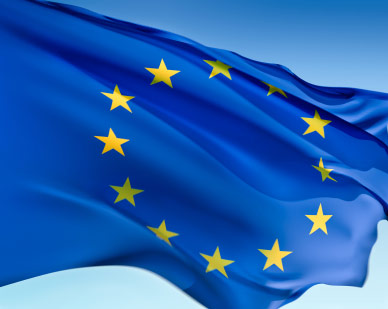The report is another vehicle to support the argument for why Big Tech should pay a fair contribution to network costs
Mobile’s economic contribution is expanding, but market dynamics are impeding Europe’s 5G progress, according to a new report from the GSMA. Mobile technologies and services contributed €757 billion to European GDP in 2021, but the Europe Union’s Digital Decade goals are threatened by the continent lagging in 5G roll-out.
This is the main thrust of the GSMA’s 2022 Mobile Economy Report Europe. It shows that at the end of June 2022, 108 operators in 34 markets across Europe had launched commercial 5G services, with consumer take-up reaching 6% of the mobile customer base.
Norway leads with 16% adoption, followed by Switzerland (14%), Finland (13%), the UK (11%) and Germany (10%).
Overall though, tough market conditions are leaving Europe trailing and the report predicts that by 2025, the average adoption of 5G across Europe will hit 44%, with the UK and Germany expected to have the highest 5G adoption rates in Europe at 61% and 59% respectively. However by that time, South Korea is expected to hit 73% with Japan and the US likely to achieve 68% adoption.
Also, although 5G network coverage in Europe will rise to 70% in 2025 (from 47% in 2021), nearly a third of the population will lack 5G coverage, compared to 2% or less in South Korea and the US.
Digital Decade goals
In 2021, the European Commission (EC) set out its vision for Europe’s digital transformation by 2030 in the Digital Decade framework, with 5G seen at the lynchpin as economies digitalise.
Daniel Pataki, GSMA Vice President for Policy & Regulation, and Head of Europe, said, “Europe is adopting 5G faster than ever before, but greater focus on creating the right market conditions for infrastructure investment is needed to keep pace with other world markets. This should include the implementation of the principle of fair contribution to network costs”.
This latest report is just the latest salvo in an ongoing campaign by the GSMA and ETNO, which has some support outside of the operator organisations. The European Commission,
The EU’s executive arm, has previously rebuffed such appeals, but now there is a precedent outside Europe. A court in South Korea recently ordered Netflix to pay for the massive levels of traffic that flooded SK Broadband’s network when its TV series, Squid Game, was launched at the end of 2021 and some suggestion that the EC might be shifting its stance.
There are also arguments against invoking regulation to level the playing field, such as from the Disruptive Competition Project.
Not all vendors are on the telcos’ side either: Sara Rasmussen, CCO of Telness Tech, the Swedish-based digital telco enabler, argues that it’s absurd to blame the users of the infrastructure, in this case Big Tech, instead of finding ways to monetise as part of their business model.
Industry impact
The report also examines how European operators are progressing with the roll-out of stand-alone (SA) 5G networks, noting that 5G SA services in Europe are now available in Finland, Germany and Italy. Further deployments are expected in the next few years.
European operators are also at the forefront of cutting-edge, energy-efficient technologies and the use of renewables, with many already reaching 100% renewable electricity use across their footprints, powering their network infrastructure, data centres and other sites.



